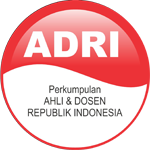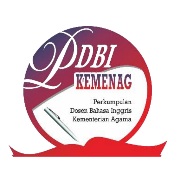Exploring the Students’ Voices on the Use of Wordshake and Shusi Spell Games to Teach English Vocabulary
Abstract
Keywords
Full Text:
PDFReferences
Adediwura, A. A., & Tayo, B. (2007). Perception of teachers’ knowledge, attitude and teaching skills as predictor of academic performance in Nigerian secondary schools. Educational Research and Review, 2(7), 165–171. http://www.academicjournals.org/ERR
Al Adzillina, N., & Hasanah, H. U. (2021). The impact of multisensory method on students’ memorizing vocabulary at Halimah Kindergarten Prenduan Sumenep. PANYONARA: Journal of English Education, 3(2), 155–166. https://doi.org/10.19105/panyonara.v3i2.4317
Alhebshi, A. A., & Halabi, M. S. (2020). Teachers’ and learners’ perceptions towards Digital game-based learning in ESL classroom. Journal for the Study of English Linguistics, 8(1), 166–180. https://doi.org/10.5296/jsel.v8i1.17353
Alqahtani, M. (2015). The importance of vocabulary in language learning and how to be taught. International Journal of Teaching and Education, 3(3), 21–34. https://doi.org/10.20472/te.2015.3.3.002
Aniuranti, A. (2021). The use of ice breakers in online English grammar classes. Surakarta English and Literature Journal, 4(2), 85–97.
Aniuranti, A., Tsani, M. H. N., & Wulandari, Y. (2021). Pelatihan penyusunan Ice Breaking untuk penguatan kompetensi calon guru. ABSYARA: Jurnal Pengabdian Pada Masyarakat, 2(1), 85–93. https://doi.org/10.29408/ab.v2i1.3578
Arikunto, S. (2014). Prosedur Penelitian: Suatu Pendekatan Praktik. Rineka Cipta. http://r2kn.litbang.kemkes.go.id:8080/handle/123456789/62880
Astuti, A. R., Solihat, A., & Satriani, I. (2020). the Influence of Ice Breaker To Students’ Motivation in Teaching English. PROJECT (Professional Journal of English Education), 3(2), 210. https://doi.org/10.22460/project.v3i2.p210-216
Constantinescu, R.-S. (2012). Learning by playing: Using computer games in teaching English grammar to high school students. 8th International Conference ELearning and Software for Education.
Creswell, J. W. (2011). Research Design: Qualitative, Quantitative, and Mixed Methods Approaches. SAGE Publications.
Dakhi, S., & Fitria, T. N. (2019). The Principles and the Teaching of English Vocabulary: A Review. JET (Journal of English Teaching), 5(1), 15–25. https://doi.org/10.33541/jet.v5i1.956
Deesri, A. (2002). Games in the ESL and EFL class. The Internet TESL Journal, 8(9).
Ersöz, A. (2000). Six games for the EFL/ESL classroom. The Internet TESL Journal, 6(6).
Gozcu, E., & Caganaga, C. K. (2016). The importance of using games in EFL classrooms. Cypriot Journal of Educational Sciences, 11(3), 126–135. https://doi.org/10.18844/cjes.v11i3.625
Gushendra, R. (2017). An experimental study: Improving students’ vocabulary mastery by using English songs. Indonesian Journal of Integrated English Language Teaching, 3(1), 53–64. https://doi.org/10.24014/ijielt.v3i1.3968
Harianto. (2021). Students ’ Perception on Importance of English at MAN INSAN Cendikia Jambi. State Islamic University of Sulthan Thaha Saifuddin Jambi.
Hikmah, W., Aniuranti, A., & Yasinta, W. (2022). EFL students’ voices on learning vocabulary through the use of Doodles Instagram account. Economics, Social, and Humanities Journal (Esochum), 2(1), 29–38. https://jurnal.unupurwokerto.ac.id/index.php/esochum/article/view/92/70
Hutasoit, R., & Tambunan, B. (2018). The Effect of Ice Breaking Technique in Teaching Speaking at the Tenth Grade Students of SMK Dharma Bhakti Siborongborong in Academic Year 2018/2019. International Journal of English Literature and Social Sciences, 3(5), 700–705. https://doi.org/10.22161/ijels.3.5.2
Jassim, L. L., & Dzakiria, H. (2019). A literature review on the impact of games on learning English vocabulary to children. International Journal of Language and Literary Studies, 1(1), 47–53. https://doi.org/10.36892/ijlls.v1i1.22
Kurniawan, R. (2015). Students’ Perceptions of Teachers’ Classroom Questioning (A Descriptive Study on State Senior High School Students In Banyumas). Universitas Muhamadiyah Purwokerto.
Laily, U., & Febrianingrum. (2023). The effect of drilling routine tasks on students’ vocabulary mastery of beginner English class (BEC) at Islamic Boarding School Pamekasan. PANYONARA: Journal of English Education, 5(1), 30–40. https://doi.org/10.19105/panyonara.v5i1.6974
Ledy, N. M., Sujarwati, I., & Syafryadin. (2023). Elementary school students’ perceptions of learning vocabularies using short stories. ENGLISH FRANCA: Academic Journal of English Language and Education, 7(1), 163–174. https://doi.org/10.29240/ef.v7i1.5890
Marneni, S., Kumar, B. S., & Bhukya, N. (2017). The role of ice Breakers in English language classroom. International Journal of English Language, Literature in Humanities, 5(11), 457–463.
Mohajan, H. (2020). Quantitative research: A successful investigation in natural and social sciences. In Journal of Economic Development, Environment and People (Vol. 9, Issue 4). https://mpra.ub.uni-muenchen.de/105149/
Mulyana, D. (2007). Ilmu Komunikasi: Suatu Pengantar. Rosda.
Notion, I. S. . (2001). Learning Vocabulary in Another Language. Cambridge University Press. https://doi.org/10.1016/s0889-4906(02)00014-5
Ramadhaniarti, T. (2016). Teaching English vocabulary through game: Views from the students. Fourth International Seminar on English Language and Teaching, 04(02), 382–387. ejournal.unp.ac.id
Rohmatillah. (2014). A study on students’ difficulties in learning vocabulary. English Education: Jurnal Tadris Bahasa Inggris, 6(1), 69–86.
Sugiyono. (2019). Metode Penelitian: Kuantitatif, Kualitatif, dan R&D. Penerbit Alfabeta.
Suwartono. (2014). Dasar-Dasar Metodologi Penelitian. Penerbit ANDI.
Taghizadeh, M., Vaezi, S., & Ravan, M. (2017). Digital games, songs and flashcards and their effects on vocabulary knowledge of Iranian preschoolers. International Journal of English Language & Translation Studies, 5(4), 156–171. www.eltsjournal.org
Thornbury, S. (2002). How to Teach Vocabulary.pdf. Pearson Education Limited.
Unumeri, G. O. (2009). Perception and Conflict. National Open University of Nigeria.
Wijayanti, E. (2020). The effect of reading newspaper and short stories on students’ vocabulary size at Cenderawasih University Setting. ENGLISH FRANCA: Academic Journal of English Language and Education, 4(1), 17–34.
Winarni, E. W. (2018). Teori dan Praktik Penelitian Kuantitatif Kualitatif: Penelitian Tindakan Kelas (PTK) Research and Development R&D. Bumi Aksara.
Wulandari, F. (2021). The students’ perception of game in vocabulary learning. Elsa Journal: English Language Studies and Applied Linguistics Journal, 1(2), 1–9. http://jurnal.polteq.ac.id/index.php/elsa/article/view/76
Yeganehpour, P., & Takkaç, M. (2016). Using ice-breakers in improving every factor which considered in testing leraners speaking ability. International Journal on New Trends in Education and Their Implication, 7(1), 58–68. www.ijonte.org 58
Yusovi, V. N., Muhtarom, & Purwanti, E. (2023). Study about student’s perception toward the use of smart TV in learning speaking on the material giving and asking of instructions. PANYONARA: Journal of English Education, 5(1), 64–72. https://doi.org/10.19105/panyonara.v5i1.7284
DOI: http://dx.doi.org/10.29240/ef.v7i2.8153
Refbacks
- There are currently no refbacks.
Copyright (c) 2023 Asfi Aniuranti, Arini Hidayah

This work is licensed under a Creative Commons Attribution-NonCommercial-ShareAlike 4.0 International License.
INDEXED BY:
 This work is licensed under a Creative Commons Attribution-NonCommercial-ShareAlike 4.0 International License
This work is licensed under a Creative Commons Attribution-NonCommercial-ShareAlike 4.0 International License
@ ENGLISH FRANCA : Academic Journal of English Language and Education
Jl. Dr. AK Gani No 1 Dusun Curup, Rejang Lebong Regency, Bengkulu Province, Indonesia, 39119.
Dr. Eka Apriani, M.Pd., email: efranca@iaincurup.ac.id, eka.apriani@iaincurup.ac.id.




.png)












